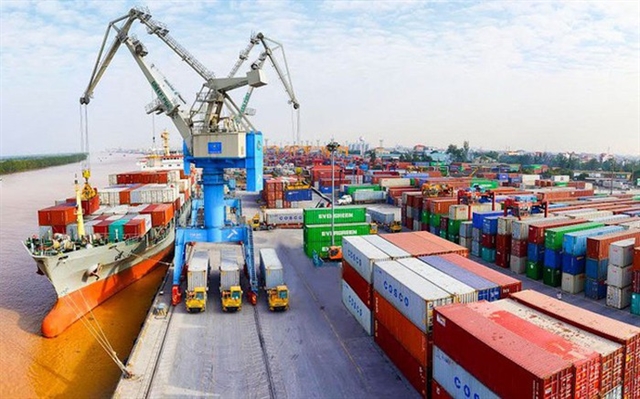Fitch Ratings has revised the outlook on Viet Nam's long-term foreign-currency issuer default rating (IDR) to stable, from positive, and has affirmed the rating at 'BB'.

Fitch Ratings has revised the outlook on Viet Nam's long-term foreign-currency issuer default rating (IDR) to stable, from positive, and has affirmed the rating at 'BB'.
“The outlook revision reflects the impact of the escalating COVID-19 pandemic on Viet Nam's economy through its tourism and export sectors, and weakening domestic demand,” the international rating agency explained in a report released on Thursday.
“The affirmation reflects Viet Nam's strong medium-term growth prospects, lengthening record of macrostability, lower government debt levels and stronger external finances compared with peers, including foreign-exchange reserves built up over the previous few years during more favourable economic conditions.”
Fitch projects Viet Nam's GDP growth to slow to 3.3 per cent in 2020, from 7.0 per cent in 2019, on account of the pandemic. This would be the lowest annual growth rate since the mid-1980s. Growth in the first quarter of 2020 slowed to 3.8 per cent, from about 7.0 per cent in the last quarter of 2019.
The 2020 forecast is highly uncertain and subject to downside risk, depending on the evolution of the pandemic, both within Viet Nam and in its major export markets. Viet Nam has so far recorded a relatively low number of COVID-19 cases, but these could increase, and large parts of the country are already subject to curbs on economic and business activity to prevent the spread.
The tourism and export sectors are particularly vulnerable to weaker activity. Tourism accounts for about 10 per cent of GDP directly, but its contribution to overall GDP is considerably higher through indirect spillovers. Tourist arrivals for March fell by about 68 per cent year-on-year. Fitch’s baseline assumes the outbreak is contained by the second-half of this year and the global tourism industry starts to recover at a gradual pace.
“We expect exports to contract sharply, given the fall in demand in Viet Nam's key export markets, including the US and China, although the latter has begun to recover; about 23 per cent of total exports were to the US at end-2019, while about 16 per cent were to China. Weak export demand will affect foreign direct investment (FDI) inflows into the manufacturing sector.”
“We expect the current account to shift to a modest deficit in 2020, from a surplus of around 3.0 per cent in 2019, as exports, tourism and remittances decline However, it should return to surplus in 2021 as the global economy recovers,” Fitch said, adding that it has used provisional numbers for the revised GDP series, for these calculations.
According to the rating agency, domestic demand is likely to stay muted as strict measures aimed at maintaining social distancing to contain spread of the virus are put in place. The authorities are implementing policies to mitigate the impact, including relief measures to assist households and the tourism and transport sectors. Specifics include payment extensions for value-added, personal income and land taxes for those affected by the outbreak, and cash handouts to workers who have lost jobs.
The relief package to combat COVID-19 so far amounts to VND171 trillion (around 2.1 per cent of GDP). Additional measures may be introduced if downward economic pressures intensify, including an acceleration of infrastructure spending.
Fitch said fiscal consolidation is likely to be delayed due to the pandemic relief measures and higher spending to cushion the economic impact of the outbreak.
“We expect the budget deficit to widen to 6.5 per cent of GDP in 2020, from an estimated 3.4 per cent in 2019, and for gross general government debt to increase to 42.5 per cent of GDP, from about 38 per cent of GDP in 2019, which is in line with the 'BB' median. The projected deficit and debt levels could rise if the outbreak lasts longer than we expect. Our calculations are based on the provisional numbers for the revised GDP series.”
Fitch expects economic momentum to rebound in 2021, with growth projected at 7.3 per cent as external and domestic demand gradually recover in line with global and regional trends. Exports and tourism are likely to rebound and FDI in the manufacturing sector should pick up, supporting strong medium-term growth prospects. — VNS





